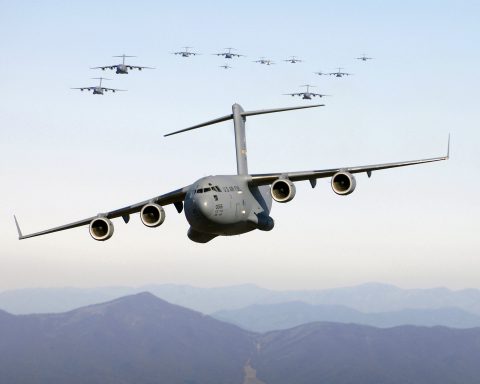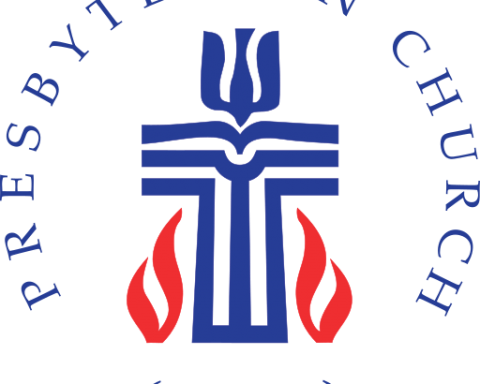
Editor’s Note: A few months ago, Presbyterian blogger Jan Edmiston wrote a post on her blog, achurchforstarvingartists.wordpress.com, entitled “Denominational Political Stands (& Who Really Cares?).” Edmiston raised an honest and important question, one that is perhaps especially on our mind as we move toward another General Assembly: Why do we as a church create, discuss, and adopt positions on certain issues of social witness when we know that they have the potential to be divisive – and that our political leaders are not exactly waiting with bated breath to hear what the Presbyterian Church (U.S.A.) has to say?
Several members of the Advisory Committee on Social Witness Policy (ACSWP for short), the committee that is tasked with interpreting the social witness policy of the PC(USA) and whose members serve as advisors to Unbound, took it upon themselves to thoughtfully and prayerfully provide an answer. Even aside from perhaps the more practical answer – that it is this policy which serves as the General Assembly mandate for the work of everything from the Presbyterian Hunger Program to the Presbyterian Peacemaking Program to the PC(USA) Office of Public Witness (and many more!), allowing for and directing the work these programs will do – ACSWP sought to reflect on the deeper, more theologically and ethically based reasons why we do what we do. The following article, along with this response from Ray Roberts, seeks to answer Edmiston’s question.
___________________________________________
I care about drones because God cares about drones – both the drone operators and the victims of drone war.
___________________________________________
Click here to read Edmiston’s original blog
On February 10, 2014, the Reverend Jan Edmiston posted a blog including her thoughts about how having a PC(USA) debate on the ethics of drones seemed to be ridiculous. Her argument centered around the question “Who cares?”

Photo Credit: fastcompany.com
The short answer is that I care. Not just because I sit on the Advisory Committee on Social Witness Policy (ACSWP for short) – the General Assembly committee tasked with studying social issues and writing reports like the one Edmiston references – and not just because I was tasked with reading and responding to the particular papers (one from ACSWP, one form the Presbyterian Peace Fellowship) being discussed at Edmiston’s meeting. I care because I read the news stories about US drones killing innocent children in Afghanistan and Pakistan. I care because I worry about the US Border Patrol’s use of drones along the US-Mexico border, a mere 63 miles from my home. More importantly, I care because I am Presbyterian.
I am not a cradle Presbyterian; rather, I have chosen to make this denomination my home. Growing up in the Reformed tradition that nurtured my call to work for justice, I was raised on a quote from the Dutch theologian and statesman Abraham Kuyper, who famously stated that there is not one square inch of the world that does not belong to God.
___________________________________________
I was raised on a quote from the Dutch theologian and statesman Abraham Kuyper, who famously stated that there is not one square inch of the world that does not belong to God.
___________________________________________
This high view of God—the God that created the world, sustains the world, and loves the world—forms the basis of who Presbyterians believe God is. I care about drones because God cares about drones. God cares about both the drone operators and the victims of drone war, regardless of what they may or may not have done. Both the drone operator and the victim are created in the image of God, and neither loses their claim of being God’s children because they are operating drones or living in war zones.
 At the same time, I see these Presbyterian papers on drones as an attempt to make sense of and respond to the brokenness caused by drones, both here in the United States and abroad. Part of our Presbyterian heritage is the legacy of human sin – the recognition that humanity is capable of breaking relationships with ourselves, with one another, and with God. Even as the world belongs to God, humans have the capability to destroy what God has created. We need not look very far into the issue of drones before we encounter that brokenness: the brokenness in our US policies as well as the brokenness in the lives of individuals affected by those policies, both here in the United States and around the world.
At the same time, I see these Presbyterian papers on drones as an attempt to make sense of and respond to the brokenness caused by drones, both here in the United States and abroad. Part of our Presbyterian heritage is the legacy of human sin – the recognition that humanity is capable of breaking relationships with ourselves, with one another, and with God. Even as the world belongs to God, humans have the capability to destroy what God has created. We need not look very far into the issue of drones before we encounter that brokenness: the brokenness in our US policies as well as the brokenness in the lives of individuals affected by those policies, both here in the United States and around the world.
So, where do I go when I believe in both God’s sovereignty and the total depravity of humanity? I cling tightly to the belief that God is more powerful than human sin. That God continues to be in control, even when realities like drone usage threaten to overwhelm me. In short, it is out of faithfulness to God that I prayerfully read and approved ACSWP’s report on drones.
___________________________________________
ACSWP saw the need to start this debate within our Presbyterian community not because we were looking for some abstract and silly debate but because we believe this conversation offers us insight into who God is in 2014.
___________________________________________
The use of drones is relatively new. Ethicists, both secular and religious, are still hashing out when it is and is not appropriate to use drones – both in warfare and in domestic surveillance. The Advisory Committee on Social Witness Policy saw the need to start this debate within our Presbyterian community not because we were looking for some abstract and silly debate but because we believe this conversation offers us insight into who God is in 2014 – along with insight into who we are as humans and how broken humanity can be.
 Sure, the answers do not come easily; in in all honesty, our report raises more questions than it answers. But, as we approach an unknown future in which drone usage will likely become more and more common, the Presbyterian Church (U.S.A.) is attempting to answer God’s call to faithfulness “in a broken and fearful world” that is ever-changing and often morally confusing. And as a Presbyterian, it is precisely in answering this call to faithfulness that I find my faith challenged and nurtured.
Sure, the answers do not come easily; in in all honesty, our report raises more questions than it answers. But, as we approach an unknown future in which drone usage will likely become more and more common, the Presbyterian Church (U.S.A.) is attempting to answer God’s call to faithfulness “in a broken and fearful world” that is ever-changing and often morally confusing. And as a Presbyterian, it is precisely in answering this call to faithfulness that I find my faith challenged and nurtured.
AUTHOR BIO: Rachael Eggebeen holds an MA from the University of Arizona (Tucson) in Near Eastern Studies and an MAT from Fuller Seminary. She is an eighth grade social teacher at Apollo Middle School in the Sunnyside Unified School District in Tucson, Arizona, where she attends St. Mark’s Presbyterian Church. She is a member of ACSWP, representing the borderlands and the barrios of the US-Mexico border.
*****
Check out the two papers on drones being submitted to the 221st General Assembly, one by ACSWP and one by the Presbyterian Peace Fellowship (PPF).
Read more articles from The Road to Detroit: Issues of Social Justice Before the 221st General Assembly!





Unbound Social